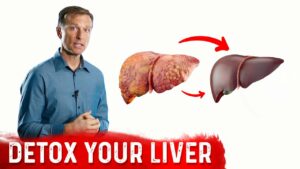The video reviews the potential health benefits of NMN (nicotinamide mononucleotide), a form of vitamin B3, and its impact on NAD (nicotinamide adenine dinucleotide) levels in the body. While some studies show that NMN can improve energy metabolism, physical activity, and insulin sensitivity in mice, it is unclear if NAD levels decline with age in humans. There is controversy surrounding the absorption of NMN supplements, as they may be converted into nicotinic acid before being absorbed. Human studies on NMN and muscle NAD levels are lacking, and the effectiveness of NMN supplements on muscle performance remains uncertain. Other forms of vitamin B3 have shown promising results in improving signs of aging, skin health, and aiding in recovery from illnesses. The recommended daily intake for vitamin B3 is 16 milligrams, but some individuals may take higher doses. The FDA banned NMN supplements due to concerns with specific brands, but negotiations are ongoing. It is essential to choose reputable brands that undergo third-party testing for purity.

Our Summaries are written by our own AI Infrastructure, to save you time on your Health Journey!
Key Insights:
- Research suggests that NMN (nicotinamide mononucleotide) may have potential health benefits, as demonstrated in a study where mice given NMN showed enhanced energy metabolism, physical activity, and improved insulin sensitivity.
- NAD (nicotinamide adenine dinucleotide) is crucial for cellular functions and is believed to decline with age, contributing to age-related diseases.
- Exercise and a healthy lifestyle may help maintain youthful NAD levels without the need for supplements.
- Controversy exists regarding the absorption of NMN and NR (nicotinamide riboside) supplements, with some studies suggesting that they may be broken down into nicotinic acid before reaching the bloodstream and cells.
- Human evidence supports that NMN and NR supplements can increase blood NAD levels, but it remains unclear whether they have a significant impact on muscle and other tissue NAD levels.
- Recent clinical studies on NMN have methodological issues, making it difficult to draw definitive conclusions about their effectiveness.
- Other forms of vitamin B3, such as nicotinamide, have shown benefits in improving signs of aging, supporting mitochondrial health, and reducing the rates of non-melanoma skin cancer.
- Vitamin B3 is recommended for its potential health benefits, but it’s important to choose reliable brands that are regularly third-party tested for purity when purchasing supplements.
- The FDA recently banned NMN supplements due to concerns about a specific proprietary blend, but negotiations with supplement companies are ongoing.
- It is essential to consider personal health goals, dosage recommendations, and potential risks associated with vitamin B3 supplementation.
Transcript
This is the most comprehensive review of the anime research that I’ve ever done to answer the question: Will enemy supplements radically improve our health or is it just hype? And I think most of you will be surprised at the conclusion at the end.
So NMN stands for nicotinamide mononucleotide, and it’s a form of vitamin B3. There’s a lot of excitement about the potential that NMN may have on human health because of papers such as this one in 2016 where they gave NMN to mice over a 12-month period and compared it to placebo. The mice who took NMN were protected against the age-associated physiological declines. They showed enhanced energy metabolism, greater physical activity, and improved insulin sensitivity.
The theory goes that if we take NMN or other forms of vitamin B3, we can support our NAD levels. NAD is crucial to our metabolism and influences many key cellular functions, including DNA repair, cellular senescence, and immune cell function. It is believed that aging is associated with a gradual decline in NAD levels, and this decline is linked to numerous age-associated diseases.
However, it’s not obvious that NAD levels decline as we age, as older adults who regularly exercise have NAD levels roughly the same as younger people. It might be that through a healthy lifestyle, including a good diet and regular exercise, we can maintain youthful NAD levels without supplements.
Moreover, there is controversy surrounding the absorption of NMN and other supplements. Some research suggests that orally administered nicotinamide riboside (NR) and NMN are converted into nicotinic acid by the gut microbiome. This raises questions about how these supplements are absorbed into the body and reach our cells.
Additionally, in a 2018 study, it was found that NMN and NR supplements are significantly broken down before they reach our bloodstream.
While there is overwhelming human evidence that NMN supplements boost blood NAD, it is unclear whether these supplements increase NAD levels in tissues such as muscle. There is no evidence from human studies on NMN to answer this question definitively. However, a study on NR supplements showed that muscle NAD levels remained unchanged over a 12-week period, suggesting that these supplements may be broken down before reaching the muscles.
When it comes to clinical studies on NMN, many of them are small and have methodological issues, making it difficult to draw definitive conclusions. However, research on other forms of vitamin B3 shows promising findings in improving signs of aging, such as fine lines and wrinkles, as well as aiding in recovery and improving muscle strength for patients with damaged mitochondria.
It’s important to note that vitamin B3 may help protect against new cancers but may potentially fuel existing cancer growth.
In summary, it’s not clear if NAD levels decline with age, and it’s uncertain if NMN or NR supplements are absorbed directly by the body or reach muscle tissues. However, there is evidence that vitamin B3 has tangible benefits in human health. The recommended daily intake for vitamin B3 is 16 milligrams, but personal dosage may vary.
In conclusion, while there is optimism about the role of vitamin B3 in human health, it is important to choose reputable brands for supplements and be cautious of misleading claims.





